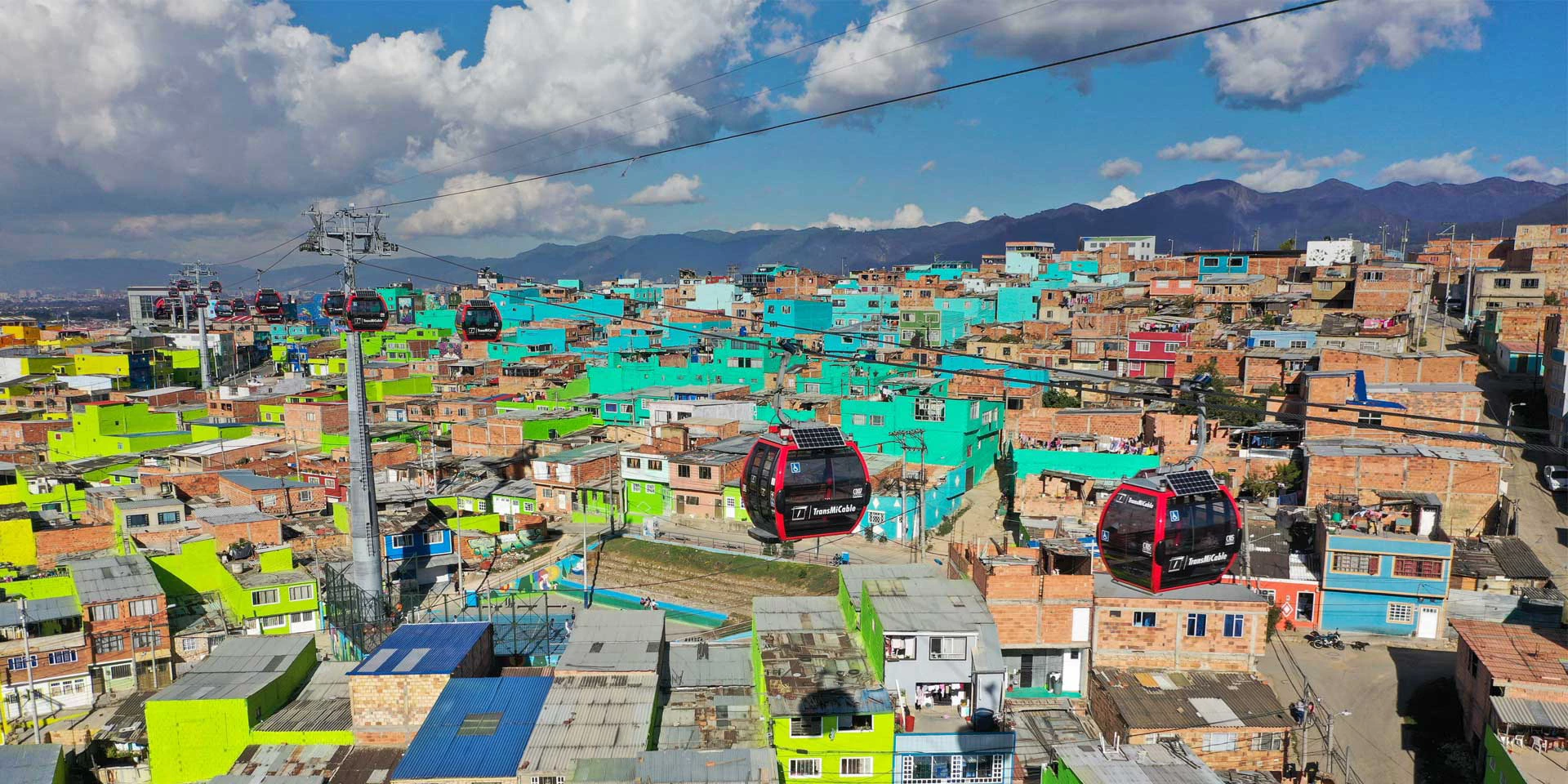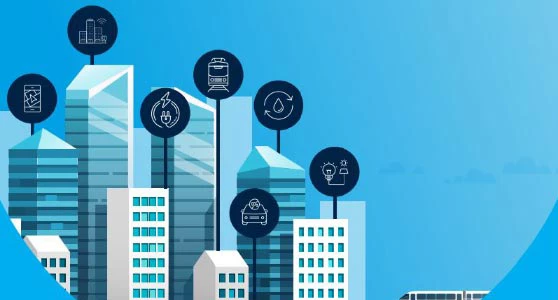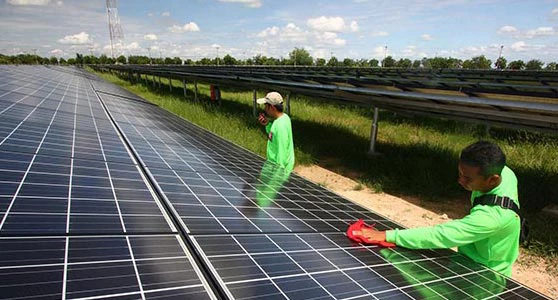Our client countries, especially those with large populations in extreme poverty or those emerging from years of conflict and fragility, are asking us for more — particularly as they grapple with the impacts of COVID-19. Working Upstream, in short, combines our roles as bank and entrepreneur to bring private sector solutions and investment to address the world’s biggest development challenges.
Scalable Solutions to Enable Investment Opportunities
IFC is unlocking private investment across emerging markets by bringing scalable solutions to address some of the world’s toughest development challenges. This is a major focus for IFC’s proactive, early-stage market and project preparation (“upstream”) work—and critical to achieving our $5.5 billion capital increase goal by 2030.
We are developing globally replicable products that transfer proven approaches from one country to another, bringing business results to clients and creating positive impact for local economies. In partnership with the World Bank Group, we are able to provide integrated solutions combining transaction advice, standardized tender and project documents, and financing.
Each replicable approach is carefully tailored to meet the needs of clients and governments, helping landmark projects move from the early idea stage into implementation with speed and efficiency.
Replicable Products
Frequently Asked Questions
IFC’s ambitious strategic goal is to attract billions of dollars of new private investment that addresses development challenges, generates jobs, and creates opportunities in the developing world. We’re especially focused on attracting investment in low-income countries and fragile and conflict-affected states. Below are some frequently asked questions to help explain this entrepreneurial approach that we call working “Upstream,” which is designed to help create more projects and attract more private investment in emerging markets.
Can you clearly define IFC’s “Upstream” approach?
Working Upstream is helping to establish the conditions in a country that lead to private investments. A main reason for a lack of private investment in many developing countries is a shortage of commercially viable investment opportunities. This lack of investment dampens growth in countries across the developing world.
To attract capital, we are working to remove barriers to investment and enhance the operating environment for private business. We want to create new investment projects, which, often following feasibility studies, we will offer to potential investors.
What does an “Upstream” project look like?
“Upstream” activities occur before the traditional investment cycle and are necessary precursors to an investment. The work can entail both identifying public-sector reforms that will unlock more private investment as well as creating projects that we will offer to potential investors.
There isn’t a one-size-fits-all example. The projects can be accomplished as quickly as in a few months or take several years. But there are several guiding principles common to all Upstream work. This work includes:
- Having a clear line of sight to a potential private sector investment within five years
- Having a measurable development impact once realized
- Identifying and addressing barriers to investment
- Being consistent with the development priorities of our client countries.
In short, Upstream interventions are aimed at creating the conditions for a private sector investment that otherwise would not have occurred if left to market forces alone.
How is this different from the other work IFC does?
Since 1956, IFC has worked across the developing world with private sector clients and governments to help attract more private investment. We began working with mostly multinational companies and soon expanded to regional and national private sector clients, often helping finance projects that they brought to us. In recent years, we’re continuing that important work as well as using several new tools that allow us to focus more on countries’ development priorities. We have long served as a bank for our private sector clients but now we are also serving as an entrepreneur as well — understanding development priorities in a country and then identifying ways to put together private sector solutions and investments that will help a country achieve its goals.
In the most challenging areas — the poorest countries and in fragile and conflict affected states — we will not only identify projects one by one, but also look more systematically at a country’s development challenges and work toward solutions.
Why is IFC doing this work?
The world’s development needs are too large to be bridged through traditional development assistance and public sector budgets alone. Our client countries, especially those with large numbers of people living in extreme poverty, have identified the need for much more private sector investment.
The COVID-19 pandemic has made this work more urgent than ever. Beyond the immediate response to provide emergency lending to companies and banks impacted by the economic fall-out, we are also looking at ways to support countries rebuild their economies after the immediate crisis. Building a pipeline of commercially viable investments linked to a country’s medium-term development goals will be critical.
How will you measure the development impact of Upstream work?
Since 2018 IFC has been scoring all its investment projects for development impact using the Anticipated Impact Measurement and Monitoring (AIMM) system. The AIMM system enables IFC to estimate the expected development impact of our investments — allowing us to set ambitious yet achievable targets and monitor progress during the lifespan of a project. In 2019 we expanded the system to include advisory projects.
We’re in the process of applying the system to Upstream activities, providing insights on how to maximize impact and where market creation opportunities are most promising. Much of our AIMM toolbox can already be used during the different phases of an Upstream project:
- During the ideation phase, AIMM can be used to assess the market gap and provide assessments to help support specific market creation initiatives. It also provides sector-focused analytics and diagnostics.
- During the design phase, AIMM’s benchmarks and monitoring analytics can inform project design.
- During implementation, AIMM sets specific targets for projects to assess development outcomes.
The system also allows IFC to examine the systemic effects on the overall market. It looks at how a project affects stakeholders and examines the broader effects on the economy and society, including how projects promote competitiveness, resilience, integration within and across markets, inclusiveness, and sustainability.
How do I approach IFC if I have an idea for a project?
Good question. We welcome your ideas. Please send them to: askupstream@ifc.org










